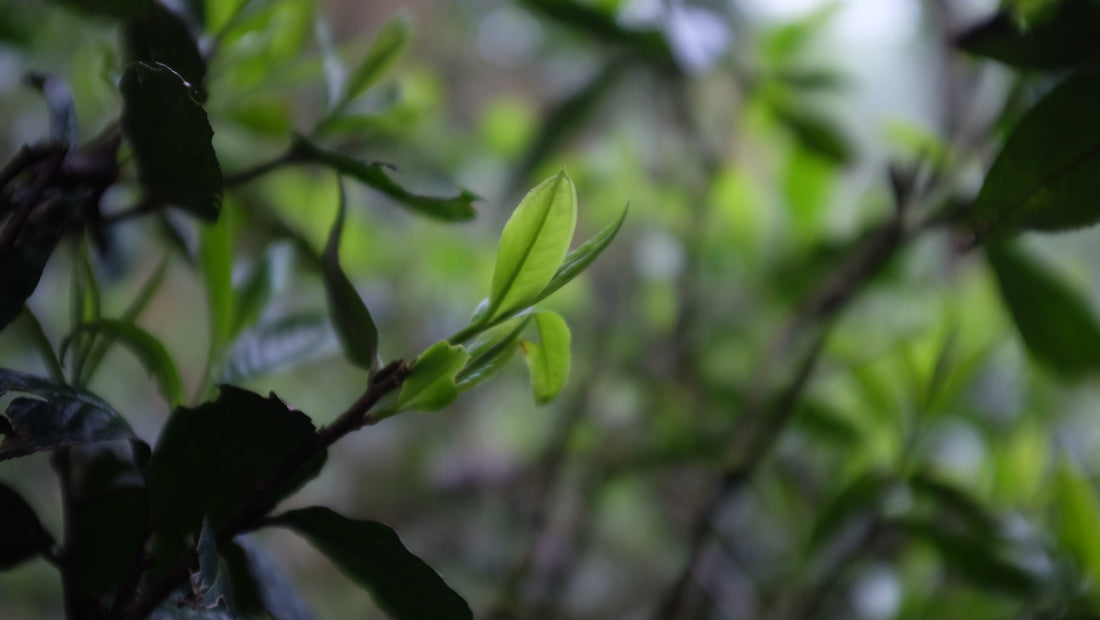There is archaeological evidence that tea has been cultivated in China for over 6000 years. Humans have been planting and consuming tea for a long time! But tea, the beverage we know it as today, is not 6000 years old. According to Chinese mythology, tea was initially discovered and consumed as an herb. For a long time, tea was eaten as a vegetable or cooked with grain porridge. Tea had no cultural significance beyond a consumable bitter green leaf during this period.
For a long time, tea, known as Cha 茶 in Chinese, did not have its distinctive word. Eventually, a character, Tu 荼, emerged around Han Dynasty. From Han to Tang Dynasty, we have relative, though not absolute, confidence that tea was recognized and consumed as its own entity. We see anecdotes of tea consumed as a beverage, but often with seasonings such as ginger and salt.
Even with this evidence, tea scholars mark the cultural history of tea to be around 1500 years. Why? Because that is when tea making began in Tang Dynasty. This was when a crucial shift happened - tea shifted from food to a drink. For the centuries before this, tea was treated as a food product and didn't hold any weight in culture; it was just an agricultural product. Just as pressing grapes does not give you wine, drying leaves does not give you tea. Once we discovered that we could yield so many nuances in the flavor of tea, we learned how to harness tea's potential. By manipulating heat and moisture, we created the sophisticated beverage we know today.
The character Cha 茶 was finalized and dedicated to this phenomenal plant. Like humans, starting with a name, we have a prototype of identity. Tea was on its way to leading us to understand nature and ourselves in a way we hadn't been able to before.
This one slight distinction spawned centuries of exploration of the tea leaf, from ground powder like matcha to pressed portable cakes like pu er, to a loose leaf beverage that's made its mark on nearly every social culture globally. Today tea is the second most consumed beverage in the world after water.
We have some great resources for you to continue learning about tea culture and its history:
- Shunan's TED Ed Video - The History of Tea
- How The Chinese Drink Tea: From Antiquity to Today - a conversation between Shunan and Wenqian from the An Hui Agriculture University in China.
- Tea Fundamentals Course - a ~20-hour course discussing the pillars of authentic tea: location, craft, and cultivar.

